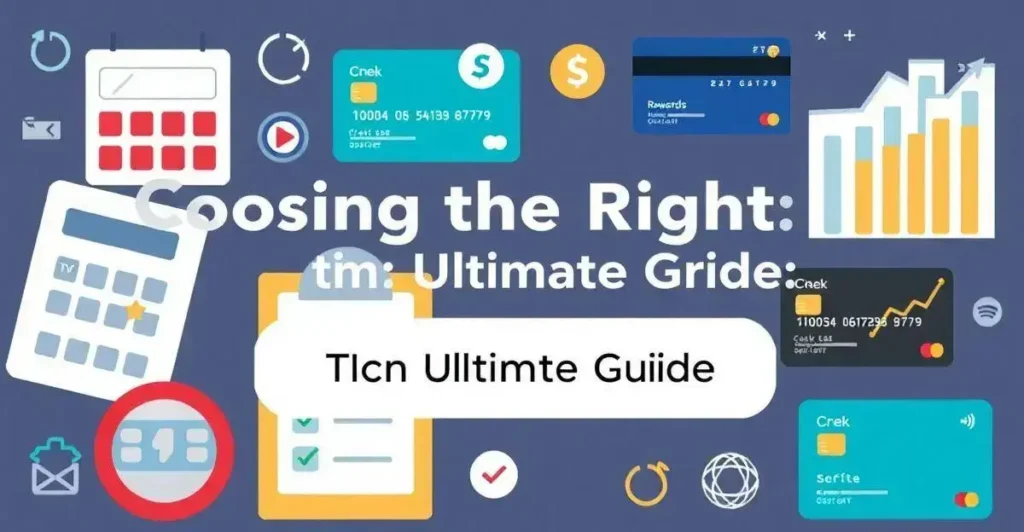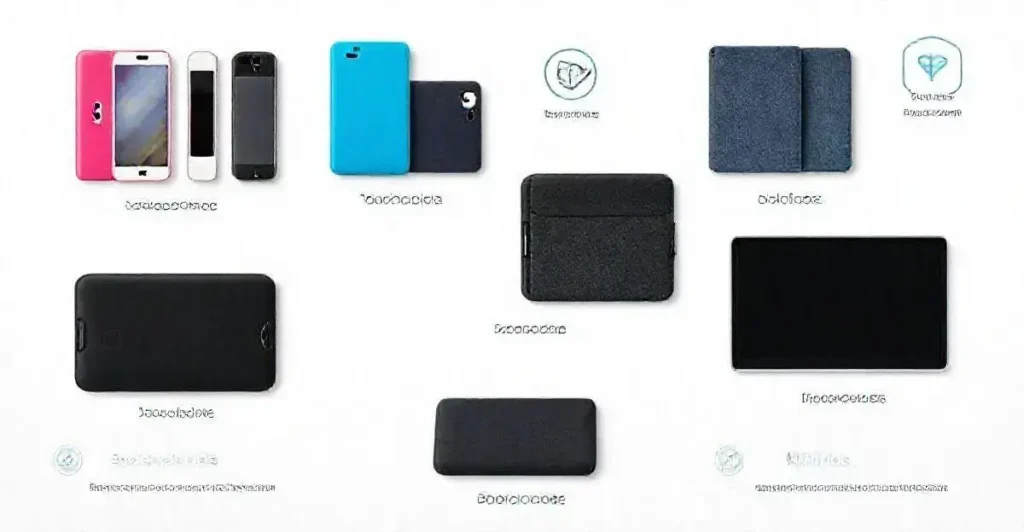Have you ever wondered, can I sell my credit card benefits? Many credit card users are unaware that their benefits can hold significant value.
In this detailed article, we will delve into the various types of credit card rewards, explore the potential of monetizing these perks, and discuss legal implications and alternatives available to you.
Understanding your credit card benefits can lead to substantial savings and unique opportunities that you might not have considered before.
Understanding Credit Card Benefits
Understanding Credit Card Benefits is crucial for anyone looking to maximize their financial rewards. Credit card benefits can enhance your spending power and save you money whenever used effectively.
There are various types of credit card benefits you might encounter. Some cards offer cashback on purchases, while others provide travel rewards, discounts, or access to exclusive experiences. Knowing these types can help you choose a card that fits your spending habits.
Key Features of Credit Card Benefits
Many credit cards include benefits such as sign-up bonuses, annual fee waivers, and access to concierge services. When looking for a credit card, it’s important to read the fine print to fully understand what’s included.
Importance of Using Benefits Wisely
Using your credit card benefits wisely can lead to significant savings. For instance, utilizing travel rewards for vacation planning can reduce your costs. Remember to track your usage, so you fully leverage all available perks.
Moreover, many credit cards offer limited-time promotions which can offer even more value. Staying informed about these offers allows you to maximize your rewards effectively. By combining different benefits, you can create a rewarding experience that enhances your financial well-being.
Types of Credit Card Rewards
Types of Credit Card Rewards come in various forms, each offering unique benefits to users. Understanding these types can help you choose the right credit card for your needs.
One common type is cashback rewards. With cashback cards, you earn a percentage of your purchases back as cash. This is straightforward and works well for those who prefer simple benefits. Cashback rates can vary by category, meaning you might earn more on groceries than gas.
Travel Rewards
Travel rewards allow you to earn points or miles for flights, hotel stays, and more. If you travel often, these cards can significantly reduce your travel expenses. Some cards partner with airlines or hotel chains to offer special bonuses like free checked bags or upgrades.
Points-Based Rewards
Points-based rewards allow you to collect points for every dollar spent. These points can be redeemed for various items, such as gift cards, merchandise, or experiences. The flexibility of points programs can be appealing, as they offer many redemption options.
Sign-Up Bonuses
Many credit cards offer sign-up bonuses for new users. These are typically large rewards given if you spend a certain amount within the first few months. This can be an excellent way to kickstart your rewards journey.
Tiered Rewards Systems
<ptiered rewards system, where you earn higher rewards for specific categories of spending. For instance, you may earn 3% for dining, 2% for groceries, and 1% for all other purchases. This encourages spending in bonus categories for maximum rewards.
Understanding the types of credit card rewards can help you optimize your spending strategy, allowing you to make the most of your credit card’s offerings.
Can You Sell Credit Card Points?

Many credit card users wonder, can you sell credit card points? The simple answer is, generally, no. Credit card points and rewards are often tied to the specific accounts of customers and usually cannot be transferred, sold, or exchanged for cash.
Most credit card companies have strict policies against selling points. This is because the card issuers need to control how their rewards are used, ensuring they align with their business model.
Why Selling Points is Restricted
Fraud prevention is a major reason for these restrictions. If selling points was allowed, it could lead to unauthorized transactions and theft of rewards. Therefore, credit card providers create guidelines to maintain security.
Exceptions and Opportunities
While direct selling is not allowed, there are alternative ways to gain value from your points. Some programs allow you to transfer points to friends or family members, depending on the card issuer’s policy. Check your card’s terms to see if this is an option for you.
Utilizing Points Effectively
Before considering any option, always read the terms and conditions provided by your credit card issuer. This can help clarify the specific rules regarding the use of your points, including any potential for transferring or combining them with other accounts.
Legal Implications of Selling Benefits
When considering selling your credit card benefits, it’s essential to understand the legal implications of selling benefits. Credit card companies often establish strict policies regulating how their rewards can be used, and violating these policies can lead to serious repercussions.
Most credit card agreements include a section on prohibited activities. Selling or transferring points may violate these terms. If you are caught trying to sell your benefits, your account could face penalties, including suspension or termination.
Potential Legal Risks
In some cases, selling credit card points or benefits can even lead to legal issues. Card issuers may take legal action based on fraud or misuse of the card. This means you could find yourself in a complicated legal battle if you decide to proceed with selling benefits.
Consumer Protection Laws
Consumer protection laws may also play a role in this situation. These laws are designed to protect consumers from fraudulent activity and unfair business practices. If you face problems regarding the sale or misuse of your credit card rewards, you might seek help under these laws. Understanding your rights can help you navigate any disputes that arise.
In addition, there may be tax implications associated with selling credit card benefits. Depending on the value of the points or benefits you sell, you might need to report that as income on your taxes. Always consult with a tax professional if you are unsure of how these regulations apply to your situation.
Alternatives to Selling Credit Card Rewards
If you can’t sell credit card rewards, there are still several alternatives to selling credit card rewards that can provide great value. Understanding these options can help you maximize the benefits you already have.
One popular alternative is to redeem your points for travel. Many credit cards offer great deals on flight tickets, hotel stays, and even car rentals. Utilizing your points for travel can often give you more value than cashing them out.
Gift Cards
Another option is to exchange your rewards for gift cards. Many credit card programs allow you to redeem points for gift cards to popular retailers. This can be a great way to use your rewards for everyday shopping or special gifts.
Cashback Rewards
If your card offers cashback, consider redeeming your rewards in cash. This method is straightforward and allows you to use the funds however you please, whether it is paying bills or treating yourself.
Transfer Points to Travel Partners
Many credit cards allow you to transfer points to travel partners, such as airlines or hotel chains. This often provides better value than redeeming points directly for travel bookings. Be sure to research transfer ratios and partner availability before proceeding.
Utilize Category Bonuses
Some cards have category bonus rewards. Take advantage of spending in those categories to earn more points. For instance, use your card for groceries, dining, or gas purchases to maximize your earnings.
Lastly, always keep an eye out for limited-time offers or promotions. Many credit cards run special campaigns that can boost the value of your rewards, allowing you to benefit even more.
Valuing Your Credit Card Benefits

Valuing your credit card benefits is an important step in maximizing your rewards. Identifying how much your credit card perks are worth can help you make informed decisions about your spending and rewards strategies.
Start by reviewing your credit card statement to see all the benefits available to you. This includes cashback, travel points, and other rewards. For example, if you have a cashback card that offers 1.5% back on all purchases, calculate how much you typically spend each month. This can give you a rough idea of your monthly cashback earnings.
Calculating the Value of Points
For travel rewards, the value can vary greatly. To find the value of your points, use the formula: Value = (redemption value of points) / (number of points required). For example, if a flight costs 25,000 points and is worth $500, the value is $500 ÷ 25,000 = $0.02 per point.
Comparing Benefits
Next, consider the benefits of different cards. Some offer higher rewards in specific categories, while others provide annual bonuses. Compare your current card benefits with others in the market to see if you can get more value elsewhere.
Maximizing Value
To get the most out of your benefits, use your card strategically. Utilize bonus categories effectively and keep track of limited-time promotions. Also, consider signing up for cards that suit your spending habits to maximize points and rewards.
Finally, keep in mind any fees associated with your credit card. Sometimes, a card that offers a high rewards rate might have an annual fee that reduces overall value. Always weigh the benefits against the costs to ensure you are truly getting the best rewards possible.
How to Transfer Credit Card Rewards
How to transfer credit card rewards can open up new opportunities for maximizing your benefits. If your credit card allows point transfers, it’s a great way to increase the value of your rewards.
First, you need to check if your credit card offers a transfer feature. Most travel rewards cards provide this option, allowing you to transfer points to airline or hotel partners. Look for this information in the card’s terms and conditions or on the issuer’s website.
Step-by-Step Transfer Process
To initiate a transfer, follow these steps:
- Log in to your credit card account: Access your account through the credit card issuer’s website or mobile app.
- Navigate to the rewards section: Find the area dedicated to your points or rewards program. This section will outline your available points and transfer options.
- Select transfer options: Choose the partner you’d like to transfer your points to. Each partner may have different transfer ratios and rules.
- Enter transfer details: Input the number of points you wish to transfer and other required information, like your frequent flyer number if applicable.
- Confirm your transfer: Review the transfer details carefully and confirm the transaction. Some transfers are instant, while others might take up to a few days.
Things to Consider
Be mindful of the transfer ratios, as they can vary by partner. For example, some airline programs may require more points for a flight compared to others. Always check for special offers that can enhance the value of your points.
Additionally, be aware that some credit cards impose a limit on the amount of points you can transfer. This may affect your ability to maximize your rewards.
Lastly, consider your travel or spending habits when transferring points. Make sure that the points are being transferred to a program where you can best utilize them for your upcoming travels or purchases.
Maximizing the Use of Credit Card Perks
Maximizing the use of credit card perks can significantly enhance your rewards experience. Knowing how to utilize these perks effectively allows you to gain more value from your credit cards.
First, understand all the perks available on your credit card. This includes cashback offers, travel benefits, and purchase protections. Take time to read the terms and conditions, as each card can have different features you may not be aware of.
Use Your Card for the Right Purchases
To get the most out of your perks, use your credit card for everyday expenses. This can include groceries, gas, and dining. If your card offers higher rewards for specific categories, use it for those purchases. Tracking spending habits can also help you adjust your strategy accordingly.
Keep an Eye on Promotions
Many credit card companies run limited-time promotions that can boost your earnings. Stay informed about these offers through newsletters or card issuer apps. Participating in these promotions can help you rack up extra points or cashback.
Sign Up for Alerts
Setting up alerts for bill reminders and rewards expiration can help you avoid missing benefits. Some cards allow you to set alerts for bonus categories or spending thresholds. This ensures you are always maximizing your earning potential.
Utilize All Available Benefits
In addition to points and cashback, credit card perks often include perks like access to exclusive events, travel insurance, and roadside assistance. Knowing how to access these benefits can make your credit card more valuable. For instance, if you travel often, using your card for travel-related expenses can unlock even more rewards.
Lastly, regularly evaluate whether your current credit card still meets your needs. As your spending habits change, you may find that switching to a different card with more suitable perks could be more beneficial.
Real-Life Examples of Selling Benefits

Real-life examples of selling benefits can provide insight into how people have navigated credit card rewards in practical ways. Although it’s generally not permissible to sell points or rewards directly, there are alternative methods people have successfully used to maximize the value of their benefits.
One common example is individuals using their credit card points for gift cards. For instance, John had accumulated several travel points on his credit card. Instead of redeeming them for flights, he transferred those points to a gift card rewards program, allowing him to purchase gift cards for stores he frequently shops at. This effectively turned his unused travel points into immediate purchasing power.
Travel Rewards Swapped for Experiences
Another example involves families who travel often. Sarah and her family have a credit card that offers travel points. Instead of accumulating points, she transferred her family’s travel points to a hotel loyalty program. This resulted in free hotel stays during their vacations, which is a huge benefit worth thousands of dollars, effectively “selling” her points by exchanging them for valuable stays instead of cash.
Online Marketplaces for Rewards
Some people have turned to online marketplaces where they can exchange their credit card points for other services. These exchanges often allow users to convert points into cash or other reward types. Mike found a platform that facilitated this process and swapped his excess rewards for experiences like concert tickets, which he valued more than the points themselves.
Furthermore, friends and family often help each other out with credit card rewards. For example, Lisa has a friend who travels a lot. She transfers her hotel points to him, who in turn uses them. Although not a direct sale, this mutual exchange provides both parties with benefits tailored to their needs.
These real-life examples show that while direct selling might not be allowed, there are various creative ways to extract value from credit card rewards that can still feel like a sale.
Can I Sell My Credit Card Benefits? Final Considerations
Understanding how to navigate the complex world of credit card rewards can lead to significant savings and added value. From knowing your options for transferring points to maximizing the use of perks, there are many strategies to enhance your experience.
While direct selling of credit card points is generally not an option, creative alternatives such as redeeming points for gift cards, travel, or experiences can provide substantial value. Real-life examples illustrate how others have successfully utilized their benefits in ways that suit their lifestyles.
By valuing your benefits, keeping informed about promotions, and creatively utilizing your rewards, you can unlock hidden opportunities that your credit card offers. As you explore these options, remember to stay educated about your specific card and its features to ensure you make the most of your credit card journey.


